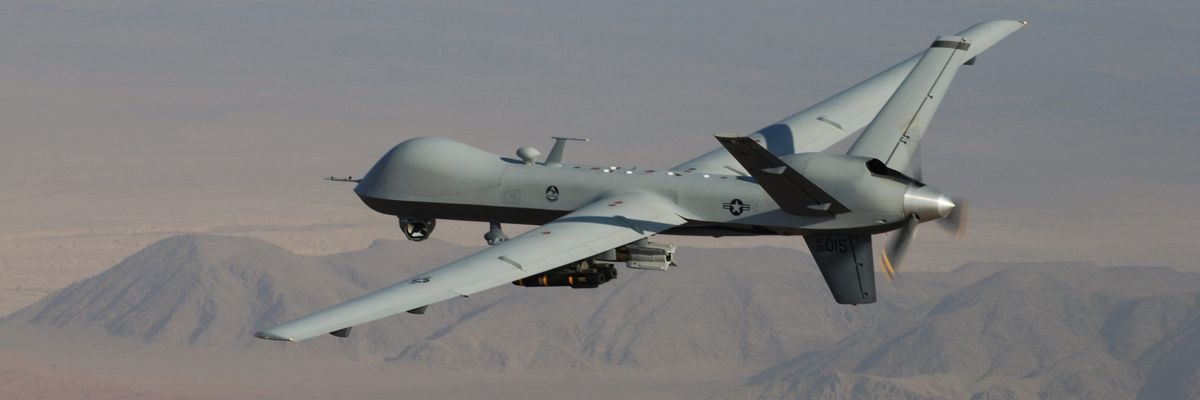A Russian fighter jet hit an American drone flying over the Black Sea this morning, according to the U.S. military, which said the incident occurred during a routine flight over international waters.
The collision came after two Russian jets intercepted the MQ-9 Reaper drone and dropped fuel on it, according to U.S. officials. As Defense One noted, the incident appears to be “the first time a Russian aircraft has brought down a U.S. aircraft since the Cold War.”
While intercepts of foreign planes are a regular occurrence, today’s incident was notable for its “unsafe and unprofessional” nature, according to National Security Council spokesperson John Kirby. The State Department has summoned Russia’s ambassador to the United States.
For their part, Russian officials blamed the crash on the drone, arguing that it made a “sharp maneuver” before hitting the fighter jet. They also alleged that the Reaper had turned off its transponders, making it more difficult to track.
Dara Masicott of the RAND Corporation described the incident as a “close pass that went bad.” While details remain unclear, Masicott speculated that the Russian pilot was attempting to force the drone to change course by flying in front of it. But, she added, a “deliberate bump cannot be ruled out yet.”
Early reports have not indicated whether the drone was armed. U.S. forces have used Reapers in a range of different roles, including high-altitude surveillance and drone strikes. In 2020, the United States used a Reaper drone to kill Iranian military leader Qassem Soleimani.
The crash is unlikely to spiral into a wider crisis, according to George Beebe of the Quincy Institute. But it highlights that “we are walking right up to the edge of a direct U.S.-Russian military confrontation.”
“The Russians see the war in Ukraine as not just a bilateral war between Russia and Ukraine but a larger conflict with the United States, so the war in Ukraine is not going to end if we're not willing to address that larger conflict too,” Beebe said.














